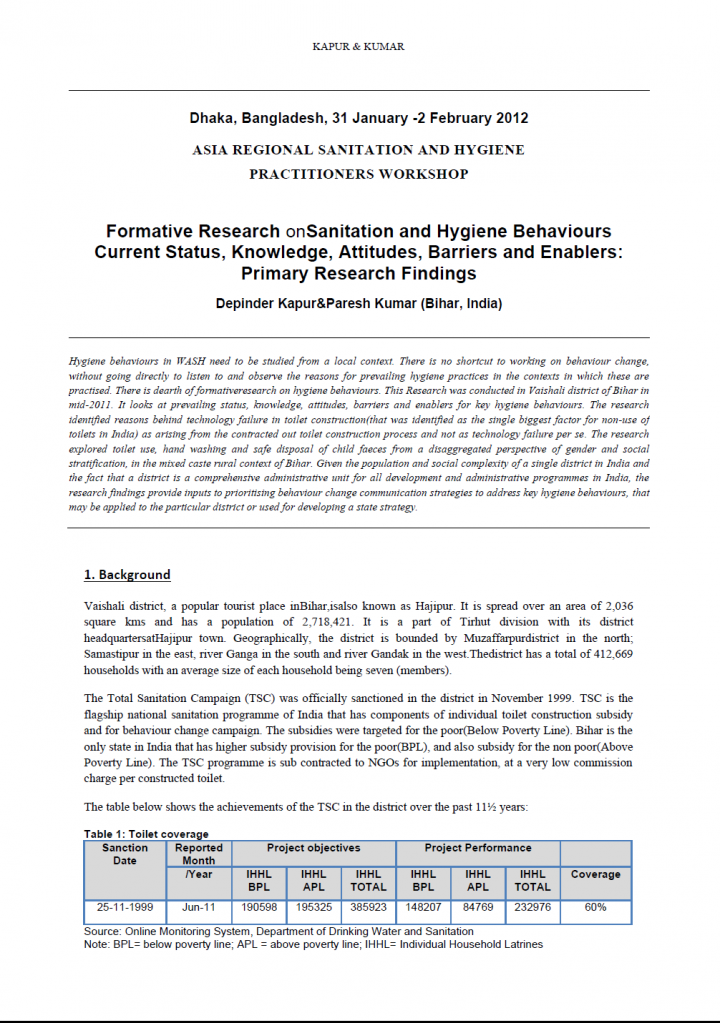Formative Research on Sanitation and Hygiene Behaviours - Current Status, Knowledge, Attitudes, Barriers and Enablers: Primary Research Findings
Kapur, D. & Kumar, P. (2012)

Published in: 2012
Pages: 13
Publisher:
Kapur, D. & Kumar, P.
Author:
Kapur, D. & Kumar, P.
Uploaded by:
SuSanA Admin
Partner profile:
common upload
1629 Views
75 Downloads
Hygiene behaviours in WASH need to be studied from a local context. There is no shortcut to working on behaviour change, without going directly to listen to and observe the reasons for prevailing hygiene practices in the contexts in which these are practised. There is dearth of formativeresearch on hygiene behaviours.
Additional information
This Research was conducted in Vaishali district of Bihar in mid-2011. It looks at prevailing status, knowledge, attitudes, barriers and enablers for key hygiene behaviours. The research identified reasons behind technology failure in toilet construction(that was identified as the single biggest factor for non-use of toilets in India) as arising from the contracted out toilet construction process and not as technology failure per se. The research explored toilet use, hand washing and safe disposal of child faeces from a disaggregated perspective of gender and social stratification, in the mixed caste rural context of Bihar. Given the population and social complexity of a single district in India and the fact that a district is a comprehensive administrative unit for all development and administrative programmes in India, the research findings provide inputs to prioritising behaviour change communication strategies to address key hygiene behaviours, that may be applied to the particular district or used for developing a state strategy.
Bibliographic information
Kapur, D. & Kumar, P. (2012). Formative Research on Sanitation and Hygiene Behaviours - Current Status, Knowledge, Attitudes, Barriers and Enablers: Primary Research Findings. Kapur, D. & Kumar, P.
Filter tags
Behaviour change (WG13) Case studies in other formats East Asia & Pacific English Rural















